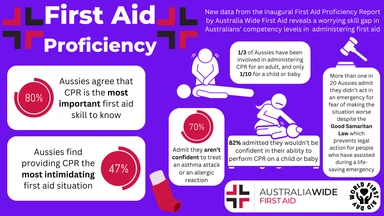Heart disease in women is being missed, and with near-fatal consequences


A recent article by the Australian Broadcasting Corporation (ABC) shone a light on a major health epidemic impacting women.
Women suffering heart attacks are being misdiagnosed due to the subtlety of their symptoms, as well as the lack of research into women’s heart health.
One such woman was Jennifer Tucker. In 2012, at 34 years of age, Jennifer began struggling to breathe while pushing her two young children in a pram.
Noticing Jennifer’s struggles, a local restaurateur assisted her to a nearby GP clinic, where an electrocardiogram, a recording of the heart’s electrical activity, did not reveal anything amiss.
Jennifer’s visit to a cardiologist three weeks later was initially met with scepticism, with the attending doctor telling her “[you do] not need to be there”.
They quickly changed their tune, however, when an angiogram revealed that one of Jennifer’s major arteries was 90% blocked and would have likely caused a fatal incident in the near future.
Jennifer was shocked at the diagnosis, as she was young, fit, did not smoke, and had no history of heart disease in her family.
Her doctors were equally shocked and could not explain why she ended up in the hospital.
But according to cardiologist Nikki Bart, it is not uncommon for heart disease in women to be misdiagnosed or dismissed.
Though Coronary heart disease is the second-biggest killer of Australian women, the number of women enrolled in heart disease research is much lower than that of men.
Likewise, heart attack symptoms in women are relatively subtle and atypical, including fatigue, sweating, stomach problems, upper body pain, and shortness of breath.
Dr Bart says that it is important to raise awareness about heart disease in women, as they are currently less likely to visit a doctor’s office or receive a proper diagnosis for their symptoms.
In terms of reducing the risk of heart disease, Dr Bart advocates for at least 20 minutes of vigorous exercise each day, advice that Jennifer echoes and adheres to religiously:
“Putting one step in front of the other really makes a difference to your own heart health.”
You can learn more about identifying, minimising, and treating the symptoms of heart disease in our general and childcare first aid courses.
We have training locations in every state, capital city, and major town throughout Australia.
Head to our website to find and enrol in a first aid course near you today.

September 16, 2024
New data reveals nearly half of Aussies lack the CPR knowledge to save a life. In fact, new data from Australia Wide First Aid’s inaugural, First Aid Proficiency Report, reveals only a third of Aussies have ever assisted in providing CPR.

August 23, 2024
The idea of helping someone in an emergency situation often raises concerns about potential legal repercussions. While the desire to assist is strong, many Australians wonder if they could be sued for rendering first aid. This article explores the legal landscape in Australia regarding the liability of individuals who provide first aid assistance.

August 16, 2024
Monkeypox is a rare viral disease that has garnered significant attention due to its similarities with smallpox. Although less severe, monkeypox is a public health concern, particularly in regions where it is endemic.